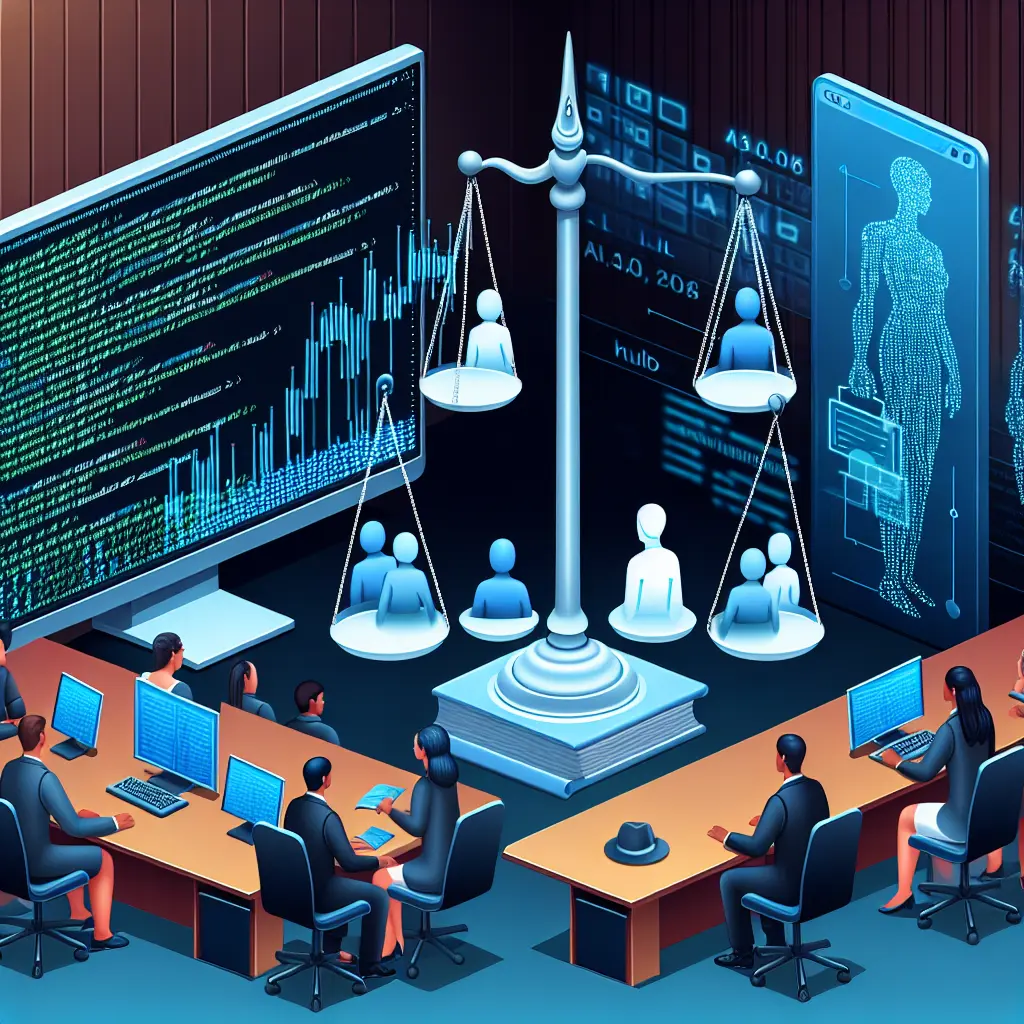
Navigating the Complex Landscape of AI Accountability
In the rapidly evolving world of artificial intelligence (AI), ensuring accountability in AI systems has become a paramount concern. As AI technologies become increasingly integrated into our daily lives—from autonomous vehicles to personalized healthcare—the importance of AI accountability cannot be overstated. This concept encompasses various factors, including ethical AI development, AI transparency, and AI governance, each playing a vital role in building trustworthy AI systems that society can rely on.
In the burgeoning field of AI, accountability has emerged as a critical pillar underpinning the ethical and responsible development of technologies. As AI systems permeate various aspects of our lives, the need for robust accountability frameworks grows increasingly paramount. Accountability in AI systems is not merely a technical challenge; it is a multifaceted endeavor encompassing ethical development, transparency, and governance.
Navigating Ethical AI Development
Recent advancements demonstrate how AI is transforming accessibility. For instance, Joas Pambou's application integrates vision language models (VLMs) and text-to-speech (TTS) technologies to audibly describe images, providing invaluable assistance to those with sight challenges source. Such applications highlight the potential for AI systems to uphold human rights by aligning with societal values, an essential aspect of ethical AI.
However, ethical challenges persist. A pertinent case involves Apple refuting claims of training its AI on unethically obtained YouTube data. Although Apple admitted using such data for another project, this situation underscores the critical need for transparency in AI training practices source. Ethical AI hinges on transparent processes and accountability in decision-making.
Ensuring Transparency and Trust
AI transparency is a cornerstone for fostering trust in AI systems. Google's recent venture into weather prediction using a hybrid model called NeuralGCM represents a move towards greater transparency by combining AI with traditional physics methods source. By bridging the gap between data-driven models and established scientific methods, Google aims to enhance accuracy while maintaining transparency—a crucial factor for public trust.
Transparency is equally significant in AI governance. As AI systems influence critical sectors like healthcare—demonstrated by AI-enhanced surgical tools that augment human capabilities—it is imperative to establish governance frameworks that ensure accountable and safe deployment of these technologies source. Governance structures should encompass comprehensive oversight mechanisms to address potential risks and biases inherent in AI systems.
Addressing AI Bias Accountability
AI bias accountability remains a pressing challenge in achieving ethical AI systems. Bias can arise at multiple stages, from data collection to algorithmic decision-making. Developing accountability frameworks emphasizing fairness and integrity is crucial. For example, Apple's integration of AI writing tools on iPhones raises questions about bias in language models, highlighting the necessity for ongoing scrutiny and adjustment to mitigate bias source.
Responsible AI development requires proactive measures to address and rectify biases, ensuring equitable outcomes. This involves adopting best practices in data handling and model training to prevent discrimination and uphold fairness—a commitment essential for building trustworthy AI systems.
The Role of Regulation and Oversight
AI regulation plays a pivotal role in formalizing accountability standards across industries. Regulatory frameworks must evolve alongside technological advancements to address emerging risks effectively. The concept of the "AI Scientist," envisioning fully automated scientific discovery, illustrates the need for regulatory oversight to ensure that such powerful technologies are developed and utilized responsibly source.
AI oversight mechanisms are crucial for maintaining public confidence. By setting clear guidelines and standards, regulators can ensure that organizations adhere to ethical considerations in AI development. This includes mandates for transparency, fairness, and accountability in AI decision-making processes.
Implementing Best Practices for AI Accountability
Establishing best practices is essential for guiding organizations toward responsible AI usage. These practices encompass strategies for risk management, transparency, and ethical considerations. Companies like Apple are paving the way by incorporating ethical practices into their technology development, emphasizing that technology should serve people responsibly source.
AI accountability challenges are manifold yet offer opportunities for innovation and improvement. By fostering a culture of continuous learning and adaptation, organizations can better navigate the complexities of AI system accountability. Collaboration among stakeholders—developers, policymakers, and users—is vital for creating informed solutions that address these challenges comprehensively.
Looking Ahead: The Future of AI Accountability
As we look to the future, it is clear that discussions around AI governance and regulation will continue to shape the landscape of responsible innovation. The integration of machine learning in creative fields highlights a future where AI will redefine boundaries across various domains source.
Moreover, the potential of AI to cultivate modern polymaths—individuals with expertise across multiple disciplines—illustrates the transformative power of accountable AI systems in enhancing human creativity and knowledge source.
Conclusion: Fostering Responsible AI for a Trustworthy Future
In conclusion, the pursuit of accountability in AI systems is pivotal for building trust and aligning these technologies with societal values. As we advance towards a future where AI plays an integral role in society, establishing robust accountability frameworks is crucial for ensuring that these technologies align with ethical standards.
Through collaborative efforts and a commitment to transparency and fairness, we can build a future where trustworthy AI systems contribute positively to our world. By prioritizing accountability at every stage of AI development—from design to deployment—stakeholders can foster a culture of responsible innovation that safeguards public trust and upholds ethical principles.
I invite you to share your thoughts and experiences on this topic. How do you envision the role of accountability in AI shaping our world? Let's continue this important conversation together.
Author: Harper Dawson